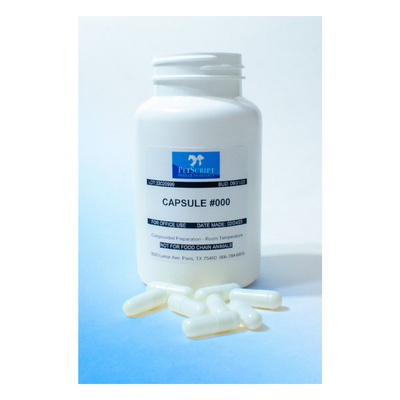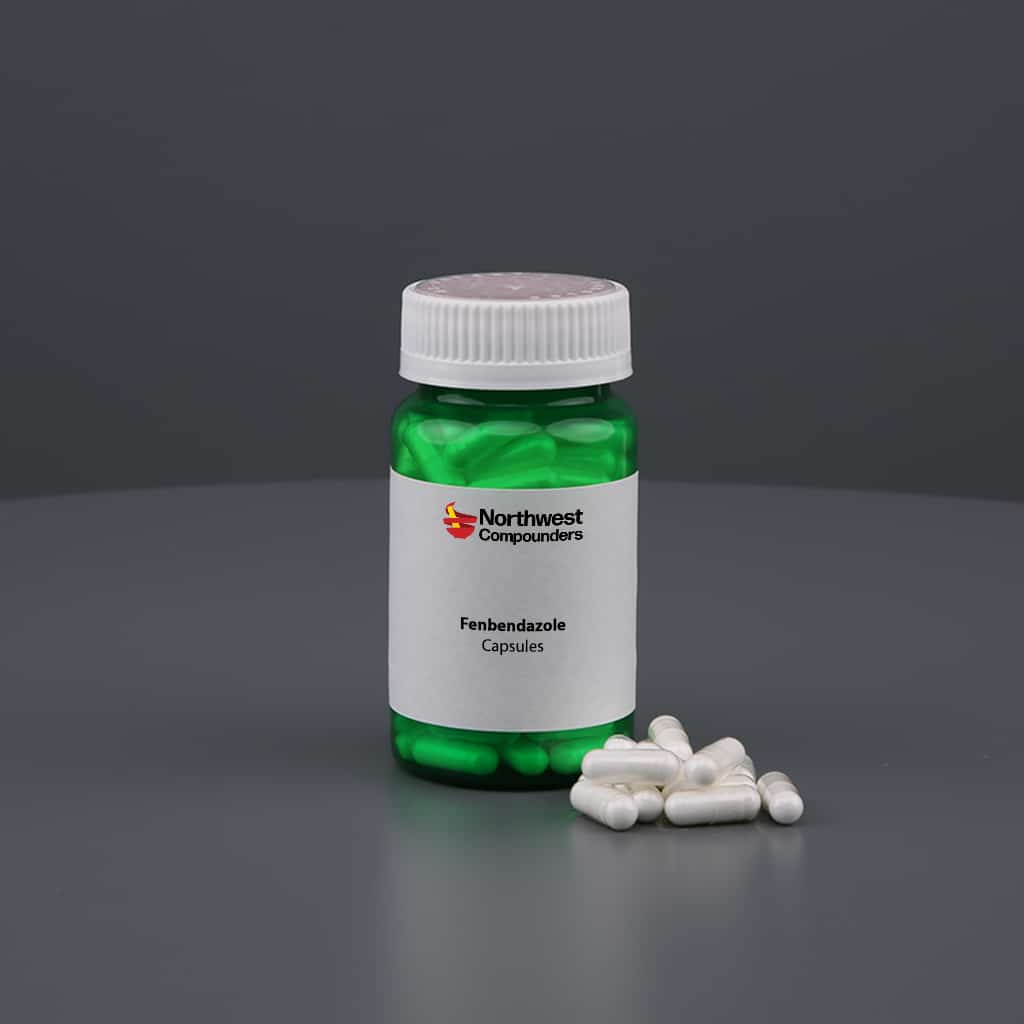fenbendazole capsules: An In-Depth Overview for Pet Owners
Wiki Article
Discovering the Mechanisms Behind Fenbendazole and Its Influence On Pet Health
Fenbendazole is a commonly used anthelmintic recognized for its efficiency versus various bloodsuckers. Its main mechanism includes the restraint of microtubule formation, which interferes with crucial procedures in these pathogens. Beyond its antiparasitic residential or commercial properties, fenbendazole additionally appears to improve immune feedbacks and possesses anti-inflammatory advantages. Understanding these diverse results could expose brand-new applications for pet health. Concerns continue to be regarding its full potential and security profile.The Pharmacokinetics of Fenbendazole
The pharmacokinetics of fenbendazole, a commonly utilized anthelmintic in vet medicine, includes the research study of its absorption, distribution, metabolic rate, and discharging within pet systems. After administration, fenbendazole is quickly absorbed from the gastrointestinal tract, with peak plasma concentrations occurring within hours. Its distribution is affected by elements such as cells binding and lipid solubility, allowing it to penetrate various tissues efficiently. The medicine undertakes considerable metabolic process largely in the liver, where it is transformed right into energetic and inactive metabolites. These metabolites contribute in the drug's total efficiency and security profile. Excretion takes place mainly with feces, with a smaller sized percentage eliminated by means of urine. The half-life of fenbendazole differs among species, which impacts application regimens. Understanding these pharmacokinetic properties is essential for maximizing its therapeutic usage and making sure effective bloodsucker control in vet methods.Mechanisms of Action Versus Bloodsuckers
Fenbendazole exerts its antiparasitic results largely through the restraint of microtubule formation in parasites. This disturbance affects their architectural integrity and mobile functions, leading to damaged energy metabolism. Because of this, the medication efficiently compromises the survival and recreation of different parasitic microorganisms.Inhibition of Microtubule Development
Inhibition of microtubule development represents a vital mechanism whereby particular anthelmintic agents, consisting of fenbendazole, apply their impacts on bloodsuckers. Fenbendazole binds to tubulin, a healthy protein that forms microtubules, disrupting the polymerization process necessary for microtubule assembly. This disruption harms vital mobile features, consisting of mitosis, intracellular transport, and architectural honesty. As microtubules play a vital duty in keeping the form and feature of parasitic cells, their restraint leads to cell cycle arrest and ultimate death of the parasite. This system is particularly reliable versus nematodes, as their reliance on microtubules for wheelchair and nutrient absorption makes them vulnerable to fenbendazole. The restraint of microtubule development is a vital facet of fenbendazole's therapeutic efficiency in vet medicine.Interruption of Power Metabolic Process
Interfering with basal metabolism is another essential device by which fenbendazole targets parasitic organisms. This anthelmintic alters the power manufacturing pathways within bloodsuckers, largely influencing their capability to produce adenosine triphosphate (ATP) By preventing glucose uptake and disrupting mitochondrial function, fenbendazole limits the energy sources necessary for the survival and reproduction of these organisms. Therefore, bloodsuckers end up being increasingly vulnerable to ecological stress and anxieties and immune feedbacks. In addition, the disturbance in energy metabolic rate not only influences the parasites directly yet additionally minimizes their capacity to take in nutrients, additionally impairing their development. Generally, the disruption of energy metabolism stands for a basic facet of fenbendazole's effectiveness against different parasitic infections, adding considerably to improved animal wellness resultsPossible Side Results and Security Account
The possible side results and safety account of fenbendazole warrant cautious consideration, especially in vet applications. While typically pertained to as safe, some animals might experience adverse responses, including stomach disruptions such as vomiting and looseness of the bowels. Additionally, neurological symptoms, although uncommon, have been reported in delicate individuals, highlighting the requirement for monitoring throughout treatment.
Fenbendazole's security in various species, consisting of dogs and felines, has been documented, yet dose and period of therapy need to be very carefully handled to reduce risks. Expecting or breast feeding animals may likewise need special attention, as the impacts on creating unborn children or nursing offspring are not completely comprehended.
Normal veterinary consultations can help minimize possible adverse effects and ensure the medication is provided properly. While fenbendazole is a reliable anthelmintic representative, vigilance concerning its side results is necessary for keeping pet wellness.
Fenbendazole's Impact on Immune Function
Fenbendazole has been noted for its prospective to regulate body immune system actions in animals. Its anti-inflammatory homes may add to boosted immune feature, giving a double advantage in taking care of health (fenbendazole capsules). Recognizing these impacts is essential for reviewing fenbendazole's role in vet medicineImmune System Inflection

Anti-inflammatory Qualities
Anti-inflammatory results represent a significant element of fenbendazole's influence on immune feature. Study suggests that fenbendazole may reduce the production of pro-inflammatory cytokines, which are critical in mediating inflammatory responses. By modulating these cytokines, fenbendazole can potentially alleviate inflammation-related problems in pets. This anti-inflammatory action not only help in taking care of signs and symptoms related to numerous illness however also improves overall immune system efficiency. Furthermore, its capability to promote a well balanced immune feedback assists protect against too much inflammatory damages, which can result in persistent wellness problems. Fenbendazole's duty in swelling management emphasizes its relevance in veterinary medication, providing a double benefit of antiparasitic activity and immune system assistance for animal health.Applications Past Conventional Parasitic Infections
While primarily recognized for its efficiency against different parasitic infections, fenbendazole has actually garnered focus for potential applications past this typical range. Recent research studies recommend that fenbendazole might have valuable effects on mobile health and immune action, making it an intriguing prospect for handling other health problems in animals. Its reported anti-inflammatory homes might offer relief for pets suffering from pop over to this web-site chronic inflammatory conditions. Additionally, some research study shows that fenbendazole could contribute in sustaining the general health of pets by enhancing vitamins and mineral absorption and gastrointestinal health and wellness. Its possible as an accessory treatment in cancer cells therapy has actually triggered interest, as initial searchings for recommend it may prevent growth cell development in specific contexts. next These varied applications highlight fenbendazole's convenience, urging more expedition right into its diverse advantages for pet health and wellness beyond its conventional use as a deworming agent.Future Research Instructions and Implications for Animal Health
The expedition of fenbendazole's possible applications has actually opened up new avenues for research intended at boosting pet health. Future studies might concentrate on its efficiency against a broader series of virus, consisting of germs and viruses, consequently increasing its function in veterinary medication. The effects of fenbendazole's systems, such as its effect on immune modulation, warrant better examination to comprehend just how it can strengthen general wellness in different varieties.In addition, research might check out suitable dosages and formulations to take full advantage of efficacy while minimizing possible negative effects. Examining fenbendazole's collaborating impacts with other medicines can cause more reliable treatment protocols. Longitudinal studies examining long-term results in pets treated with fenbendazole can provide important understandings into its security and performance. Generally, the ongoing exploration of fenbendazole supplies promising possibility to boost animal health and wellness, demanding a collaborative strategy among researchers, vets, and pharmaceutical programmers to promote developments around.
Frequently Asked Concerns
Can Fenbendazole Be Utilized in Animals for Bloodsucker Prevention?
The concern of whether fenbendazole can be made use of in livestock for bloodsucker avoidance matters, as producers look for reliable treatments (fenbendazole capsules). Research study shows it might offer benefits, however correct standards and veterinary recommendations are essential for safe useWhat Is the Suggested Dosage of Fenbendazole for Different Pets?

Are There Any Type Of Known Medicine Interactions With Fenbendazole?
Existing expertise shows that fenbendazole might interact with specific medicines, potentially influencing their efficiency or metabolic process. Vet professionals suggest browse around these guys speaking with a vet to assess private animal cases and establish any feasible interactions before management.How Does Fenbendazole Compare to Various Other Antiparasitic Medicines?
Fenbendazole is usually contrasted to various other antiparasitic drugs based on effectiveness, range of activity, and safety accounts. It is favored for its performance against a vast array of bloodsuckers while normally displaying marginal negative effects in animals.Is Fenbendazole Effective Versus Viral or Bacterial Infections in Pets?
The efficiency of fenbendazole versus viral or microbial infections in pets continues to be unproven. Study primarily concentrates on its antiparasitic properties, with minimal evidence sustaining any role in dealing with non-parasitic infections in veterinary medication.Report this wiki page